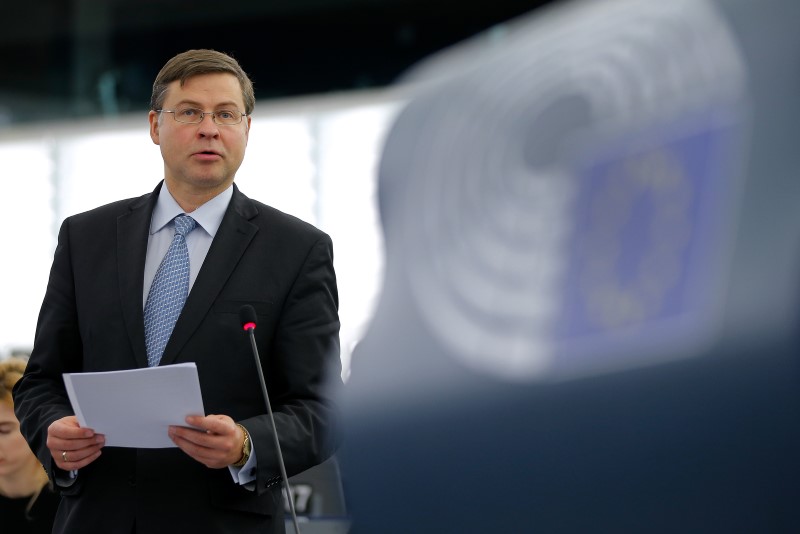Gold prices set for weekly gains on dovish Fed outlook; silver near record high
By Francesco Guarascio
BRUSSELS (Reuters) - European financial services commissioner Valdis Dombrovskis dismissed on Wednesday arguments that Italian banking is in crisis due to Britain's vote to leave the EU, weakening Rome's push to soften rules limiting state-funded bank rescues.
Addressing the European Parliament's economic affairs committee, Dombrovskis blamed Italian banks' problems on long-standing low profitability and a heavy burden of bad loans.
"This is reflected, among other things, in a decline of share prices," he said, ruling out that the British referendum on June 23 may have created new systemic problems for Italian banks. "This is not a new development. It's something which is already happening since the beginning of the year."
The dive in Italian banking shares has shaken the financial foundations of the euro zone's third-largest economy and threatened contagion to other European Union nations.
Italy has faced a banking crisis for months, as lenders struggled to unload 360 billion euros ($400 billion) of non-performing loans - about one third of the euro zone total. The country's bank sector index (FTIT8300) has fallen 30 percent since the referendum, taking its losses this year to 57 percent.
The Brexit shock has reinvigorated Italian efforts to soften new EU bank rules that impose losses on private investors before public money can be used to rescue a lender.
Hitting investors would be a huge political risk for the government of Prime Minister Matteo Renzi, which faced mass protests after it imposed losses last year on bondholders of four troubled small lenders.
Rome is in talks with the European Commission to recapitalise its weakest lenders, including Banca Monte dei Paschi di Siena (MI:BMPS), without hitting investors.
The Commission would not oppose measures to protect retail investors, such as compensation funds to reimburse those who were sold risky financial products without knowing it.
But Brussels insists that private losses should be imposed before using public money, implying that larger investors, such as pension funds, may have to pay their share.
Dombrovskis said measures that will be adopted "depend on the requests of the Italian authorities".
He was addressing lawmakers in his first hearing since he was appointed financial services commissioner, replacing Briton Jonathan Hill who resigned after the referendum. Dombrovskis will formally take up his new functions on July 16.
He reiterated the limits of existing rules, which allow a public recapitalisation of a bank only after stress tests show a capital shortfall and the lender cannot raise capital in the markets because of "a serious disturbance" in the domestic economy.
The results of next European banking stress tests are expected on July 29.
(editing by David Stamp)
